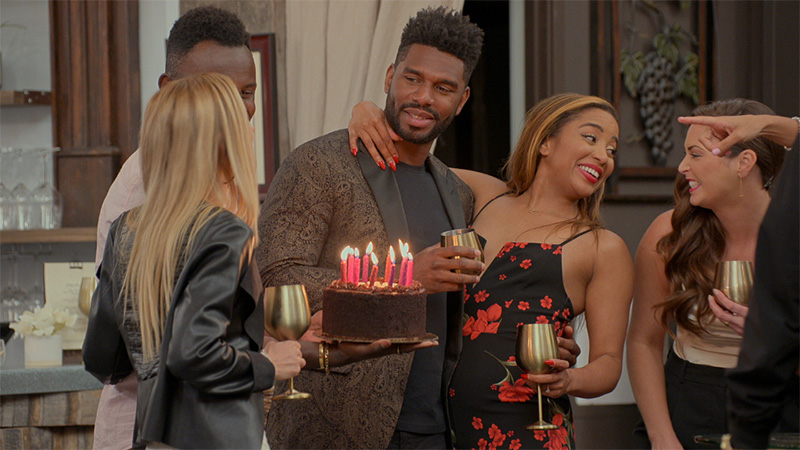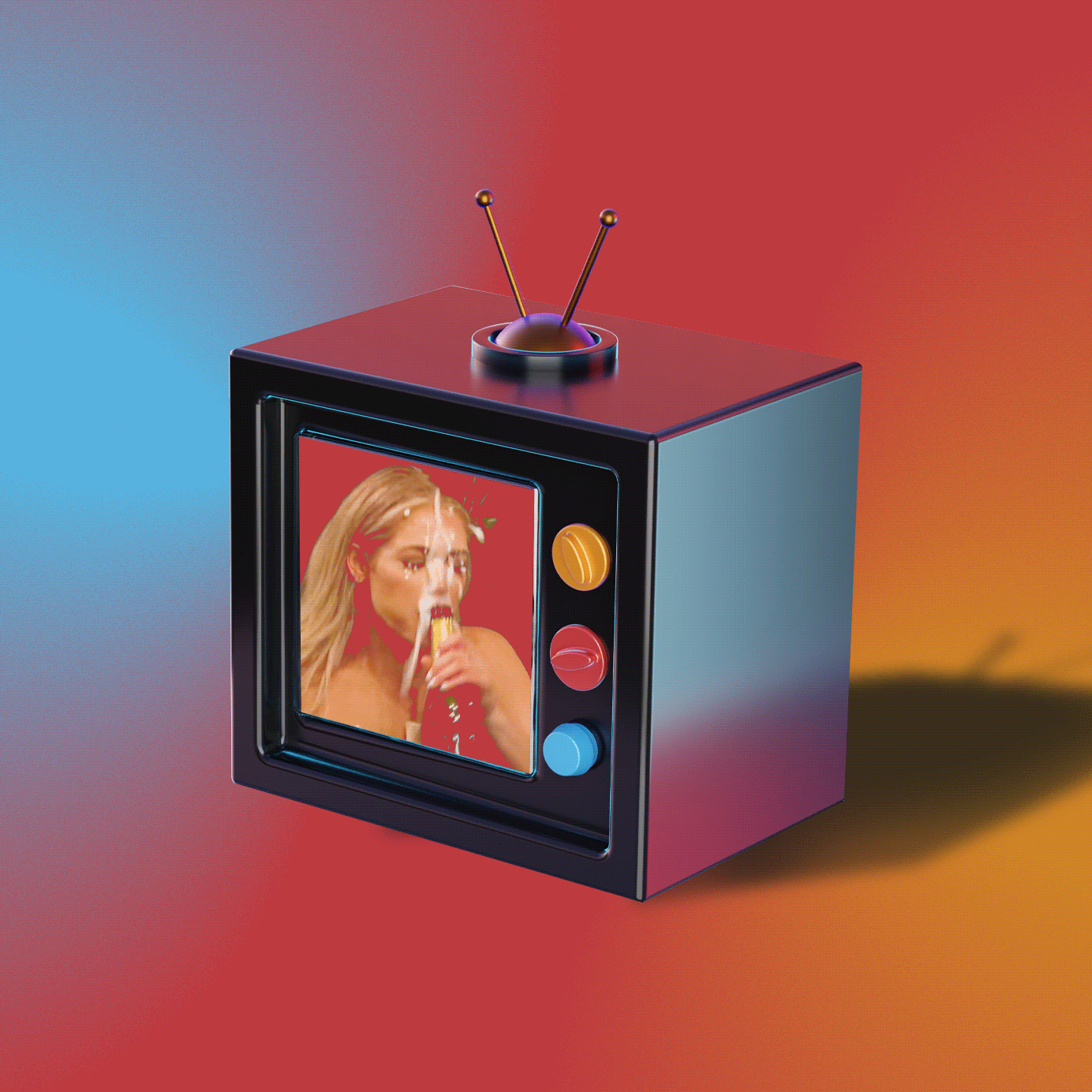Reality dating television shows have come to dominate the television landscape. What started with “The Bachelor” and “The Bachelorette” has now given way to dozens, if not hundreds, of others, including “Love Is Blind” and sister show “Perfect Match.” While each varies slightly in its format, one thing remains a near-constant among all: alcohol.
Despite the fact that every action is caught on film and broadcast to millions, the strong presence of alcohol on set often prompts overindulgence, sparking drama and unruly behavior, and generating sound bites for producers to use in the show’s final cut.
In 2017, the fourth season of “The Bachelor” franchise’s wild little sibling “Bachelor In Paradise” was famously halted following allegations of drunken sexual misconduct between two contestants. Just last year, Jeremy Hartwell — a contestant on the first season of Netflix’s hit show “Love Is Blind” — filed a lawsuit against the show and its production company, Kinetic Content, alleging that producers neglected to provide food and water to contestants, instead pumping them full of alcohol.
Multiple incidents of misconduct over the course of reality television’s history have pushed a number of shows to implement drink limits, though many argue that the number of shows that have is entirely too low, with most of the proposed limits easily skirted around. Reality television producers have an ethical and moral obligation to keep cast members and contestants safe while filming, yet more often than not, they seemingly neglect to do so in the name of “good television.”
What — or Who — Is Driving You to Drink on Reality TV?
Even without the presence of multiple cameras, first dates are anxiety-inducing by default. Data collected by American Addiction Centers from 1,002 respondents revealed that a whopping 86 percent of people consume at least one drink while on a first date for a bit of liquid courage. In fact, 73 percent of singles reported to online dating site Zoosk that they enjoy having a drink on dates to make things easier, with alcohol serving as a “good way to let your guard down and have a conversation.”
Imagine how quickly these anxieties would be exacerbated by omnipresent cameras, grueling filming hours under harsh studio lights, and prodding from producers. A drink or two would certainly take the edge off.
But the sheer extent to which alcohol is consumed on such shows remains staggering. In a 2022 study conducted by the University of Nottingham, researchers analyzed 5,219 one-minute clips from 264 episodes of reality television programs broadcast in English-speaking countries from 2019 to 2020. Of the clips and full episodes analyzed, it was found that alcohol — or implied alcohol use — appeared in 39 percent of the one-minute clips and a whopping 98 percent of episodes.
As reality TV becomes more ubiquitous across networks and streaming services, an increased number of reports have emerged indicating that it may not be entirely down to each contestant to choose how much they consume.
When reflecting on filming Netflix’s show “Perfect Match,” which follows 10 former Netflix reality TV stars as they compete in compatibility challenges in an attempt to find their perfect match, contestant Francesca Farago told Variety that unlimited alcohol was provided by the show’s producers. When asked about anything she would have done differently while filming, she confessed that she does “kind of” regret some nights where she drank too much tequila.
“There were moments of fill-in-the-blanks when you wake up and you’re like ‘Oh, my God. What did I say? What did I do?’ There was a lot of drinking going on,” Farago said.
In April 2023, Business Insider published an explosive exposé on the working conditions present on the set of the streaming giant’s hit show “Love Is Blind.” In the article, an anonymous production assistant recalled the lack of functioning sinks in contestants’ living quarters, and revealed that when they requested water, producers would interject and suggest bringing alcohol along with the water. The same PA told Insider that during dates, they were “constantly refilling [contestant’s] glasses.” Kinetic has denied all of these allegations, claiming that they have “no merit.”

While “Love Is Blind” is the most recent reality TV show to come under fire, it certainly isn’t the first to be accused of promoting heavy alcohol consumption on set. Leslie Hughes, a contestant from Season 17 of “The Bachelor,” revealed to The Daily Beast that producers regularly pushed alcohol on contestants at all times of the day. During a meeting with producers prior to filming, she recalls them asking her if she wanted a drink — at noon. When she pointed out the early hour, the producers responded, “Welcome to ‘The Bachelor’ family.”
Similarly, in 2015, Season 19 contestant Jordan Branch told TMZ that she expressed her concerns about the sheer amount of alcohol present in the mansion during the casting process. But during filming, nothing was done to address these concerns. Instead, Branch was filmed in the midst of a blackout that was then aired for the world to see. In the report, she claims that “producers manipulated contestants by constantly refreshing their glasses.”
The ‘Good TV’ to Gross Negligence Pipeline
The inherent risks that come from drinking on reality TV came to a head in 2017 when the fourth season of “Bachelor In Paradise” was paused in order to investigate allegations of sexual misconduct on set.

While filming, contestant DeMario Jackson allegedly engaged in non-consensual sexual acts performed on fellow contestant Corinne Olympios, who was reportedly too drunk to have consented. According to the producer who filed the report the day after, while Jackson and Olympios were spending time together in a hot tub, things quickly escalated, growing increasingly sexual at which point Olympios seemed to go limp, slipping under the water. It was at this moment that Jackson allegedly lifted her out of the water and performed oral sex on her, despite the fact that she appeared to be unconscious.
“You can’t say, ‘Oh they’re adults, they’re going to do what they do.’ You can’t allow a crime to occur. You just can’t.”
It apparently wasn’t until this moment that a producer intervened, carrying Olympios to her room as she was allegedly too drunk to walk on her own. A source close to the show and to Olympios told The Daily Mail that many were “deeply disturbed not just at what happened, but over the way it was handled.” For how drunk and delirious Olympios was, no medical attention was provided, instead allowing her to “sleep it off.” A source close to Olympios said that she does not fully blame Jackson, and instead says that most of the fault falls on producers who neglected to intervene. The morning after the alleged misconduct, a producer filed a report and production was shut down immediately.
More recently, just last year, “Love Is Blind” came under fire with the class action lawsuit filed against the show and its parent company by Season 1 contestant Jeremy Hartwell. The lawsuit alleges labor law violations and “unsafe and inhumane” working conditions. including deprivation of food and water, instead supplying an abundance of alcohol. The lawsuit’s allegations were only strengthened by Insider’s exposé this past spring, which included information from former contestants alleging that they were denied food and instead supplied with a surplus of wine and liquor. Kinetic Content denies all allegations, claiming that the well-being of its participants is of “paramount importance.”
The Push to Consume Becomes the Push to Think You’re Consuming
Following the misconduct allegations in 2017, “The Bachelor” franchise implemented a two-drink- per-hour limit. However, by 2021, viewers were questioning whether the rule had been eliminated due to how intoxicated Season 24’s contestants appeared to be.
Despite the explosive allegations against “Love Is Blind,” no drink limit is known to have been proposed. The same holds true for the show’s relative, “Perfect Match,” which premiered in February 2023. Envisioned by the same man who created “Love Is Blind” and produced by the same company, Kinetic Content, alcohol plays a similarly near-constant role. It wasn’t until after the show had aired that contestant Joey Sasso, who is over two years sober, revealed that his conversations with fellow sober contestant Chloe Veitch were all eliminated from the show.
“Chloe and I both wanted to show that you can go and have fun, get wild and let loose while being completely sober,” Sasso wrote in an Instagram post from March 2023. “Unfortunately, none of that made the final cut.”
Strides Still Need to Be Made
The overwhelming majority of production companies have yet to enact any solid protection measures against overconsumption, and the events that take place when it inevitably takes place. If they did wish to do so, they’d be wise to follow the lead of Mark Cronin, who created and produced “Below Deck” for Bravo. While not a dating show, if any cast member on “Below Deck” wishes to engage in sexual behaviors after consuming alcohol, producers are required to separate the cast members and question them independently before determining whether either party is too drunk to consent.
“If either one of them we felt was too drunk to make decisions, we would not allow it,” Cronin told Vice. “You can’t say, ‘Oh they’re adults, they’re going to do what they do.’ You can’t allow a crime to occur. You just can’t. You have to intervene, and you have to protect drunk cast members.”
It’s clear these shows take place in highly manufactured, artificial settings, making the “reality” in reality TV a stretch at best. However, with such widespread knowledge on and advocation for the importance of informed consent in our actual reality, many could argue that most shows are falling woefully short. In real life, we don’t have a producer tasked with ensuring our safety. But cast members do — or at least they should — especially considering that it’s those producers who profit from what takes place on screen.
